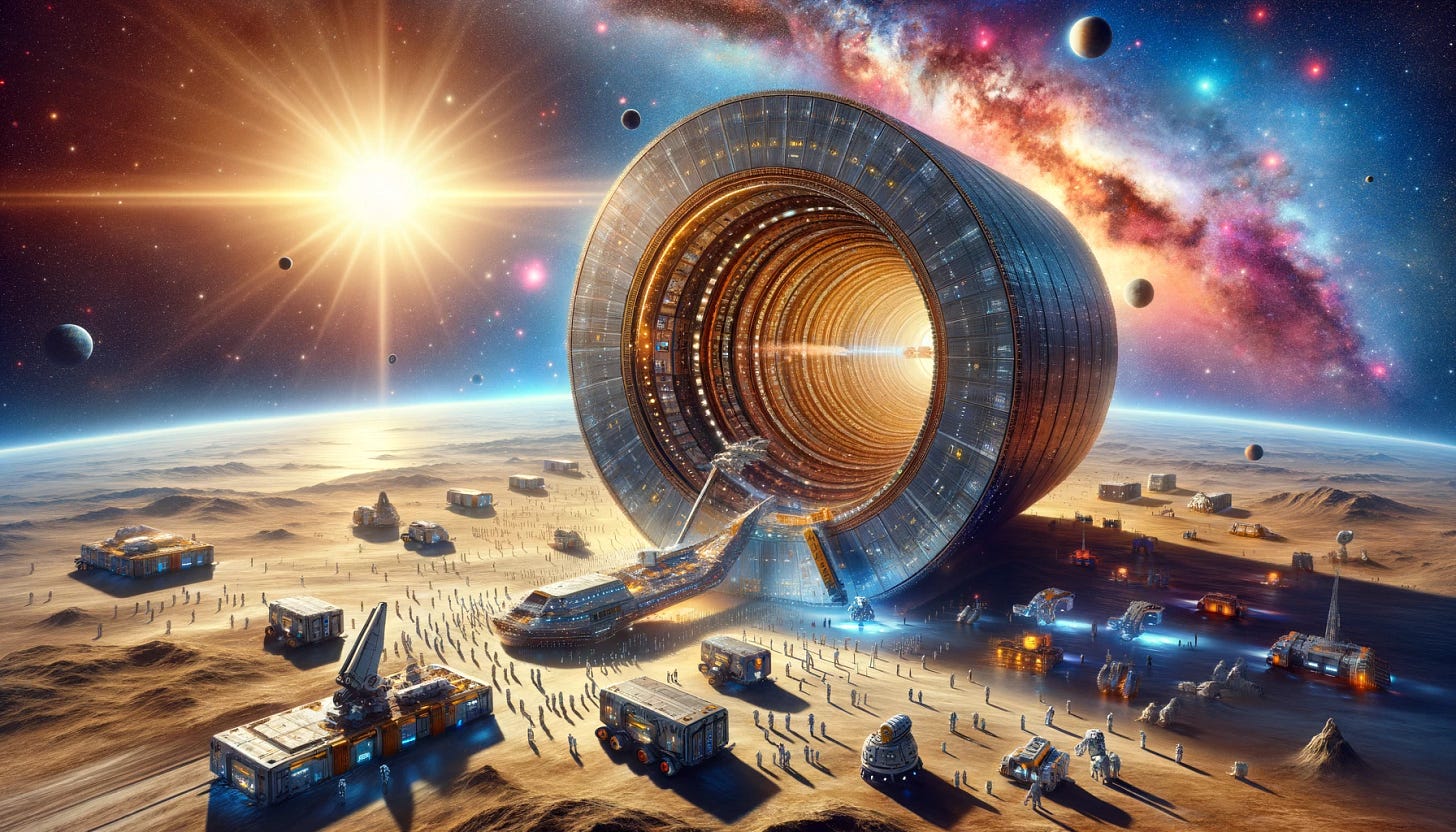Beyond Earth: Stephen Hawking's 100-Year Ultimatum
Exploring interstellar change to ensure humanity's survival within the next century
In this 2017 Wired article, Professor Stephen Hawking advocates for the urgent need for humans to find a new planet to inhabit within the next 100 years due to a series of escalating existential threats including climate change, asteroid impacts, epidemics, and overpopulation. He highlights these concerns in the context of the BBC’s science series "Tomorrow’s World," where he underscores the pressing need to overcome technological barriers that currently prevent human colonization of other planets. Overall, the article presents a compelling call to action from one of the world’s leading scientists, urging humanity to expand its horizons beyond Earth as a necessary step for its future survival.
Almost Unimaginable Potential Future Scenarios
These scenarios not only challenge our understanding of technology and evolution but also explore the philosophical and ethical questions about identity, survival, and the essence of being human in an expansive, unknown universe.
Interstellar Arks and Genetic Bottlenecks:
In a bid to preserve human life, massive interstellar arks are constructed to transport a select group of humans to a potentially habitable exoplanet. Over centuries of travel, due to limited genetic diversity and isolated evolution, these humans develop entirely new physical and psychological traits, adapting to their new environment in ways that challenge our current understanding of human biology.
The Rise of Digital Consciousness:
As physical space travel remains constrained by technological limitations, humans turn to digital solutions. Advances in neuroscience and computing allow for the uploading of human consciousness into digital realms, leading to virtual societies that can inhabit server spaces. These digital humans pioneer virtual exploration of the universe, inhabiting and terraforming digital simulations of distant worlds.
Alien Collaboration for Habitat Sharing:
The search for a new habitable planet leads to first contact with an alien civilization facing a similar plight. Humans and these aliens collaborate, sharing technologies and philosophies, leading to a mixed-species effort to terraform a new planet. This alliance fundamentally changes human culture, philosophy, and biology.
Dyson Spheres and Stellar Engines:
Humanity decides to forego finding new planets and instead constructs a Dyson Sphere—a megastructure encasing the sun to harness its energy. This project facilitates the creation of a stellar engine, a mechanism capable of steering the solar system toward a more habitable part of the galaxy.
Time Dilation Exploration Teams:
To overcome the vast distances of space, humanity employs relativistic space travel, where time for the travelers moves significantly slower than for those left on Earth. Explorers return after what feels like years to them, only to find that millennia have passed on Earth, which has now solved its crises and evolved beyond recognition.
Ecological Reconciliation and Planetary Healing:
As the technology to migrate to another planet remains elusive, humanity takes radical steps to restore and rejuvenate Earth. Advanced geoengineering and a global shift towards sustainability lead to a renaissance in Earth’s biodiversity, making the necessity of finding a new planet obsolete.
Quantum Leap in Evolution:
In preparation for life on another planet, humans engage in directed evolution, using genetic engineering and cybernetic enhancements to adapt to extraterrestrial environments. This new branch of humanity is tailored to various planetary conditions, leading to a diverse spectrum of human subspecies, each uniquely equipped for life on different types of planets.
By invoking the unimaginable and stretching our technological and philosophical limits, Stephen Hawking's insights compel us to prepare not just for potential disaster, but for an extraordinary cosmic future.


